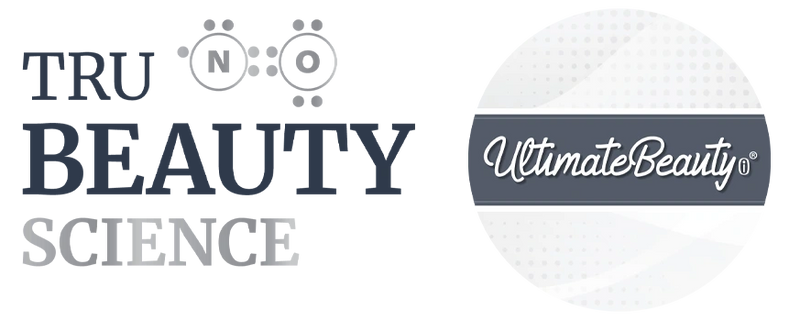According to the report “US Skin Care Products Market Size & Share” (2024), the market size value of skin care products in 2024 reached USD $23.85 billion with a projected annual growth rate of almost 3% through 2028. These purchases are for topical skin care products, but did you know that the most important way to support healthy skin is from the inside-out?
It’s true, if you want to improve your skin’s condition, and achieve increased benefits, then a strategic nutritional approach of supplementation and food choices is the way to go. We try so many different “lotions and potions” to help keep our skin hydrated and healthy. However, the
best strategy for keeping skin moist and hydrated is to make sure that you’re ingesting nutrients and raw materials that help the skin create a natural moisture barrier.
So, what nutrients should we consider? Foods rich in omega 3: Fatty Fish such as salmon, sardines, and oysters. Shrimp and plant-based sources such as chia seeds, walnuts and edamame provide ALA, which is then converted to EPA and DHA in the body. Other fatty foods that help contribute to skin health are olives and coconut oil.
If you have dry skin, you are better off spending your budget and hard-earned dollars on these essential fatty acids, and Vitamin A, B’s, C, and D…. instead of topical skin care products. These essential vitamins have shown to work together as “partners” in the molecular activating synthesis process that makes them into exceptional skin health nutrients. Vitamin A and our sunshine nutrient Vitamin D work harmoniously together. Vitamin A and C forms with a fatty consistency can have an impact as well.
Foods rich in these essential skin nutrients: green leafy vegetables, other green veggies, orange, and yellow vegetables: sweet potatoes, carrots, winter squash and fruits like cantaloupe and mangos. These nutrients can also address bumpy skin or milia (milia develops when protein keratin gets trapped under the skin, it looks like a type of cyst that is small and takes the appearance as a white bump on the skin.) Making sure you’re getting enough Vitamin A from these foods and supplementation will contribute to improving skin health.
Now, probably the best of these for skin is niacin, Vitamin B3 which is a nice skin care ingredient for a lot of things, including acne. One of the signs of a deficiency in B3 will be evident if skin rashes show up. So clearly, the skin is using niacin to maintain it’s health. This is one vitamin that has promise as a topical in treating acne.
In addition to these four key vitamins, we must include hyaluronic acid as a helper in our skin health, because it can retain water molecules very effectively. HA can bind up to 1000 times its weight in water, making it an exceptional humectant and moisture-retaining agent. This enables HA to play an active role in the maintenance of skin hydration, joint lubrication, and even eye health. Hyaluronic acid is a naturally occurring substance found throughout the human body. It is a type of carbohydrate molecule. One can ingest HA in supplement form. Foodwise: seaweed, aloe, and noni, apricots, milk, and cheese.
Collagen, while not a vitamin along with HA is an essential element for skin health as well and offers multiple benefits:
Improved Skin Hydration: Increases skin hydration, reduces dryness and roughness.
Enhanced Skin Elasticity: Collagen can help maintain skin elasticity, reducing the appearance of wrinkles and fine lines.
Increased Skin Density: Research has suggested that collagen can increase skin density, improving texture and firmness.
Reduced Wrinkles: When combined with these aforementioned vitamins and hyaluronic acid, studies have shown reduction in the appearance of wrinkles.
Protection against Skin Aging: Collagen may help reverse some skin aging effects, such as elasticity and firmness.
Lastly, we add magnesium to the mix, because it is essential for cellular processes, including those involved in skin cell turnover and repair. Magnesium supports healthy cell function and regeneration. Magnesium also provides the following benefits:
Anti-Inflammatory Properties: Magnesium can help regulate inflammatory processes in the body. By reducing inflammation, it can aid in preventing or alleviating conditions like acne and rosacea.
Hydration and Barrier Function: Magnesium helps maintain the skin's natural barrier function, which is important for preventing moisture loss and protecting against external irritants.
Stress Reduction: Magnesium helps manage stress by supporting adrenal function and regulating the production of stress hormones. Since stress can negatively impact skin health, maintaining adequate magnesium levels can indirectly benefit the skin.
Skin Tone and Texture: By supporting the synthesis of proteins and enzymes that are critical for skin health, magnesium can help improve skin tone and texture.
In summary, Skin Care Supplements that contain:
- Vitamin A (retinol or retinyl palmitate)
- Vitamin B3 (niacin)
- Vitamin C (ascorbic acid)
- Vitamin D (or sunshine)
- Omega 3
- HA
- Magnesium
- Collagen

